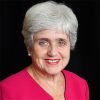|| By Margaret Gaughan
For one winner, the Maryknoll essay contest gives an intangible award
Winning first place in the 1996 Maryknoll Student Essay Contest was more than an honor for J.J. O’Connor. It was the catalyst that helped him turn a personal tragedy into a steppingstone to service.
Paralyzed from the neck down at age 16 as a result of a near-fatal ice hockey accident on Oct. 24, 1995, J.J. (James Joseph) O’Connor returned to complete his senior year at Loyola Academy in Wilmette, Ill., in the fall of 1996. “It was a difficult time for me,” recalls O’Connor, now 35. “My own class had graduated and I was struggling with my injury.”
Then came the assignment that changed his life. His English teacher, Danica Petrovic, required her students to enter the Maryknoll essay contest, whose theme that year was “Helping to Heal Sok Thea.” Sok Thea was a 13-year-old Cambodian farm boy who lost his right leg stepping on a land mine. Essay participants were asked to read Sok Thea’s story in the September 1996 Maryknoll magazine and write a letter to him, sharing a personal story of overcoming difficulties.
O’Connor admits he initially undertook the assignment only to get a good grade. “But as I wrote the letter to Sok Thea, it was like I was writing to myself,” he says.

1996 winner, teacher and late Maryknoll Father Ben Zweber.
In the letter, the young Chicagoan told his Cambodian counterpart about a trip he had taken to Pikes Peak the previous summer. Describing his feelings on the majestic summit, O’Connor wrote, “I could not help but wonder why fate had dealt me these cards.” He didn’t tell Sok Thea he had just come from a Colorado clinic specializing in spinal cord injuries and learned nothing more could be done for him.
The U.S. teen did share this realization: “We all have our mountain to climb. …The rope you will use to climb is your family and friends. …The rope will support you but can never do the climbing for you. … At the top of your mountain, you stand closest to God.”
His words won him the first-place prize of $500. He donated it to Sok Thea. “So many people were helping me,” he says, “that I felt obligated to help someone else.”
The reward for giving back came later in a letter from Sok Thea thanking O’Connor for his donation and telling him it would be used to buy an ox to replace the one his family had sold to pay his medical bills. “The letter was filled with so much joy and appreciation; it made me feel great. I began to notice that giving back is the way to live,” O’Connor says.
He begins by giving back gratitude to his parents and five sisters as well as his caregiver, Jim Smith. “I can’t do anything for myself,” O’Connor says. “Without family and friends, I wouldn’t be alive today.” He explains how Smith, an executive board member of U.S.A. Hockey, the game’s U.S. governing body, volunteered to accompany him throughout his years at Lake Forest College, enabling him to earn a degree in business. Smith continued to accompany O’Connor and connect him with U.S.A. Hockey, whose disabled section O’Connor now chairs.
“My job is to grow disabled hockey across the country,” says O’Connor, explaining that he recruits people with disabilities to play sled hockey, a form of ice hockey where they sit on special sleds atop two skate blades and use two sticks instead of one. “I’m especially proud of the youth program I’ve developed for kids 5 to 20 years old,” he says. “Helping kids with disabilities play the game I love gives me as much joy as playing.”
Instrumental in forging a partnership between U.S.A. Hockey and U.S. Paralympics, O’Connor was named general manager of the U.S. sled hockey team that won the gold medal at the Paralympics in Vancouver in 2010. Last winter in Sochi, Russia, he witnessed the U.S. sled hockey team, which included two players he had recruited as children, again take home the gold.
O’Connor, who also manages a website for the Amateur Hockey Association of Illinois and co-owns four hair-cutting salons for men, often visits schools and businesses to share his story. “Everyone has bad days,” I tell them. “But you have to make a choice not to let those overpower the good.” Faith, he says, helps him keep a positive outlook.
As for Sok Thea, he attended a Maryknoll school for the physically disabled, pursued university studies and served at a group home for people with physical disabilities. He has returned to his village.
J.J. O’Connor still has Sok Thea’s letter. “It was as much a gift to me as my gift was to him,” he says.
Featured Image: J.J. O’Connor (right) with Chicago’s sled hockey team after the team’s 2013 second-place national win. (B. Markley/U.S.)

